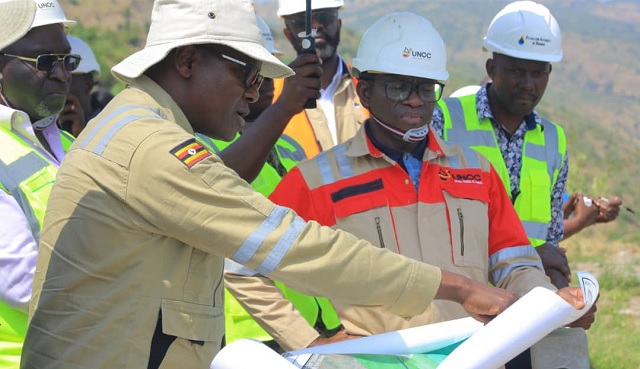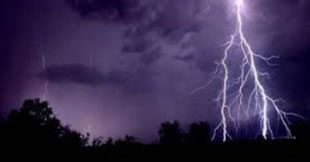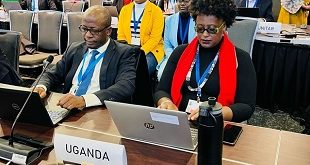
Kampala, Uganda | THE INDEPENDENT | Buganda’s Premier Charles Peter Mayiga has called for planning for development accruing from the oil and gas sector before the resources get out the ground.
The Katikiro and some members of his cabinet spent three days this week touring oil and gas infrastructural developments like the Kabalega Airport, CNOOC’s King Fisher projects as well as TotalEnergies Tilenga Project based in Buliisa and Nwoya districts.
While impressed by the progress of the projects, Charles Peter Mayiga did not hesitate to point out the fact that key sectors like agriculture, export promotions, and others were not moving along the emerging infrastructure for oil and gas industry.
While at Kabalega Airport, Katikiro and his entourage were informed that the runway and related infrastructure were nearly 98% complete. The airport with the capacity to handle the world’s largest cargo planes will facilitate the transportation of the equipment for the refinery. “But will the planes return to their place of origin empty?” asked Mayiga.
He suggests that there is a need to plan more effectively for Uganda’s oil and gas resources if they are to have lasting value.
“Because it is one thing to have a resource and quite another putting it to good use,” he said, “if you are going to put a resource to good use, you must plan effectively. We must plan as a country,” he suggested.
Aspects of the oil and gas sector feature in the third National Development 2020-2025. However from the Katikiro’s observation, while construction works in preparation for the first oil were going on, he does not see aspects of agriculture, tourism, export promotion, and other linkages to oil and gas moving in tandem.
In February 2021, a consortium of partners that included Stanbic Bank Uganda, aBi Finance, Economic Policy Research Centre (EPRC), Stanbic Properties Limited, and the Petroleum Authority of Uganda (PAU) commissioned two studies to define business opportunities in agriculture, and housing sectors linked to Uganda’s oil and gas. The findings of the survey are yet to be made public.
At the time, Earnest Rubondo, the CEO of the Petroleum Authority of Uganda (PAU) -the government agency that monitors and regulates the oil and gas sector- estimated that housing and agriculture sectors could earn Uganda an extra eight billion US Dollars in the next phases of oil and gas developments.
A housing deficit continues to be observed in the Districts of Kikuube and Buliisa where most activities are taking place. No sizeable and decent hotels or lodges exist in Kikuube and Buliisa. Visitors to Kikuube have to make an a-110Km journey to Hoima for hotel accommodation. The situation in Buliisa is not different in the case of Buliisa.
Don’t get mesmerized by operations
According to Katikiro Charles Peter Mayiga, whoever is involved should not be mesmerized by the intensive operations and infrastructure that have sprung up between February last year after an Final Investment Decision was taken.
“We would like to inspire Ugandans to take opportunities that the oil and gas industry offers to the country. When we come here, we should not be mesmerized by the obviously intensive operations in the area or even the extent of investments,” he further cautioned.
Ndi Buhuka,mu District y’e Kikuube, nnambuzibwa oluzzi lw’amafuta olwa Kingfisher, oluddukanyizibwa China National Offshore Oil Corporation. pic.twitter.com/aKwbla0X5h
— Charles Peter Mayiga (@cpmayiga) July 18, 2023
As Uganda develops its oil and gas resources, there is a global campaign urging countries to shift away from fossil fuels. Charles Peter Mayiga disagrees with the suggestion that Uganda should leave its oil and gas finds underground.
“While oil still has commercial value, we must take advantage of that. I think the new technologies are going to take 20-30 years. But after 30 years, the prices of oil are going to drop drastically,” he said. “So in that time, we need to explore our oil and get some money out of it.”
He is of the view that effective planning together with good management of finances out of oil, Uganda will not be lumped among countries with the “Dutch Disease”.
“Uganda must be very careful when the oil money starts to flowing in for us to avoid experiencing an oil curse.”
The Buganda Kingdom has outlined eight areas of focus. These include the need to protect the environment, the need for reforestation of Bunyoro Kitara, and promotion of the health of the people of Bunyoro and Uganda through good health facilities among others.
Mayiga On the negative views on Uganda’s Oil
Planned commercialization of Uganda’s oil and gas by drilling some of it from the national park, and planned construction of the East African Crude Oil Pipeline (EACOP) have attracted a number of Environment, Social, and Governance (ESG) concerns from local and global environmental and human rights activists.
This month, a report by Human Rights Watch said EACOP pipeline and oilfields will disturb some of Africa’s most sensitive ecosystems, including Murchison Falls National Park and the Murchison Falls-Albert Delta Ramsar site.
It added that pipeline ruptures and other pollution impacts would cause damage to sensitive ecosystems.
Mayiga however told URN that while it is important that environmental safeguards are adhered to when constructing projects like EACOP, he is of the view that campaigns against it are not based on facts on the ground.
“I don’t think any of our animal populations are going to be affected by the parks that are being set up to extract or explore oil. ,” said Mayiga. “So those reports about the environment are not necessarily correct.”
“And I don’t think that the East African Crude Oil is going to destroy the environment because a big portion of the pipelines goes through the kingdom of Buganda, which I’m familiar with, and there are no animal populations that are going to be destroyed by the pipeline” he added.
In mid-March, a team from Barclays Capital Inc was in Uganda on an independent evaluation of concerns leveled against the Ugandan side of EACOP.
The team in a report found that EACOP will not cut across either Lake Albert or Lake Victoria, which are critical water sources for the region, and the pipeline also does not cut across any IUCN-protected area or any Ramsar site.
“In contrast to some stories that the 50-degree heat will destroy wildlife habitats, in reality, the pipe is similar to a thermos flask, where the temperature is kept high at 50 degrees Celsius, but there is no thermal leakage to the ground.
*****
URN
 The Independent Uganda: You get the Truth we Pay the Price
The Independent Uganda: You get the Truth we Pay the Price

